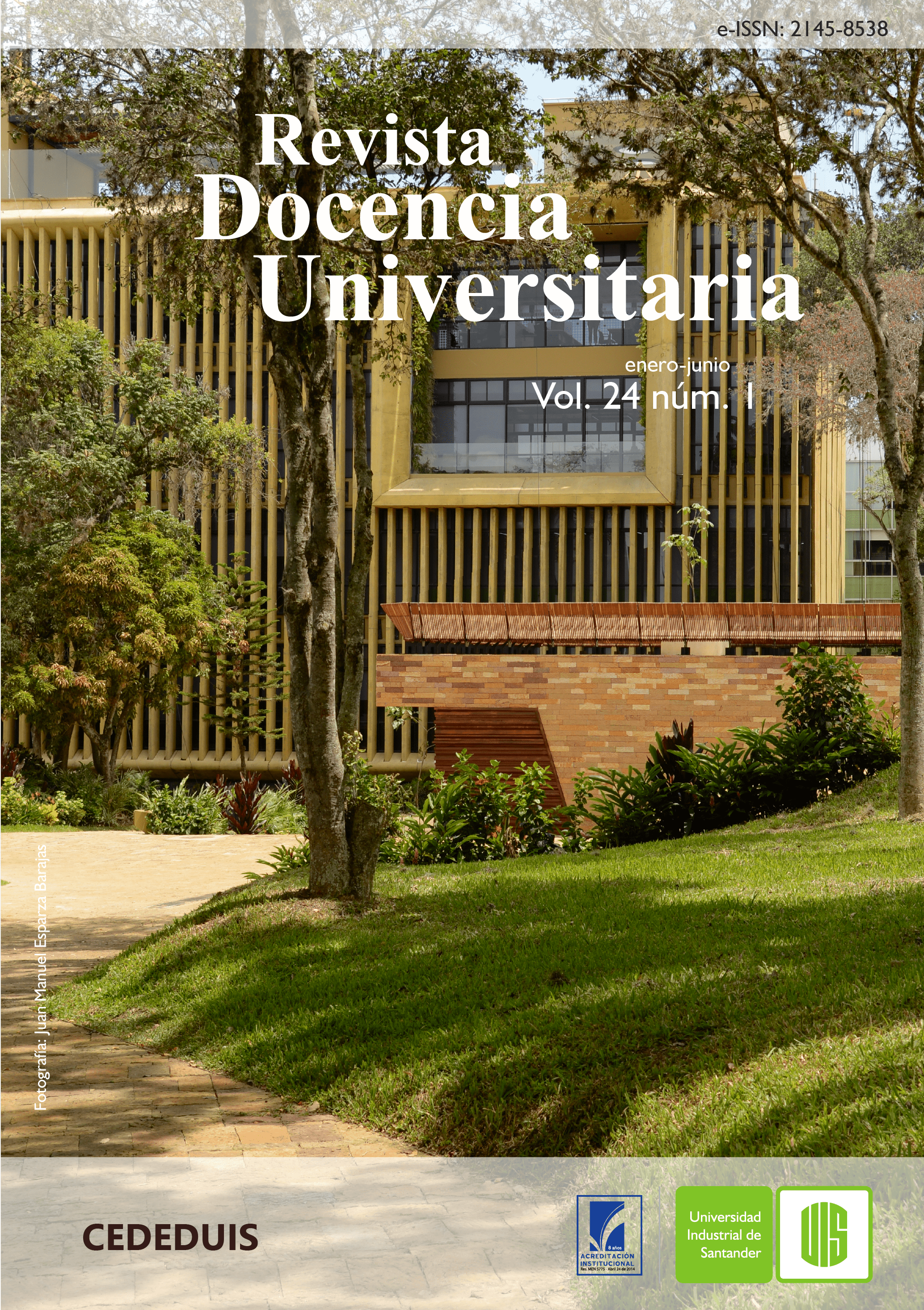Published 2023-01-30
Keywords
- Education,
- Teacher training,
- Teaching,
- Technologies,
How to Cite
Copyright (c) 2023 Revista Docencia Universitaria

This work is licensed under a Creative Commons Attribution 4.0 International License.
Abstract
The research is part of an initial teacher training classroom experience, which sought to investigate the impact generated by the use of WhatsApp, one of the most versatile communication tools in the world today. Whose objective is to publicize the experiences and reflections of teachers and students about the use of WhatsApp in the classroom and how it can contribute to strengthening pedagogical practices. The approach is mixed, the design is exploratory, the participants were 58 students distributed in 3 interdisciplinary groups of the Pedagogical and Technological University of Colombia. A semi-structured questionnaire of 3 questions was used. The results showed that the voices of the students reflect the need to continue using technologies, such as WhatsApp, which, although initially not created for educational purposes, has been facilitating significant teaching-learning processes in all areas. It is expected that, based on the results, spaces for reflection and action will be generated in the educational community about the use and management of technologies and mobile devices in personal learning environments developed in the classroom.
Downloads
References
- Cassany, D. (2021). El arte de dar clase. Anagrama.
- Cervantes, C. y Alvites, C. (2021). WhatsApp como recurso educativo y tecnológico en la educación. Hamut´ay, 8(2), 69-78, http://dx.doi.org/10.21503/hamu.v8i2.2294
- Casas, F. y Quevedo, G. (2021). El Smartphone y sus aplicaciones móviles como recurso pedagógico y su influencia en la motivación y el rendimiento académico en Biología, en alumnos de 3°año del Colegio Secundario N°34, de San Salvador de Jujuy. En Ortega, R. y López, M (comp.), Congreso de ciencia, tecnología e innovación - Libro de resúmenes (pp. 170-171). Editorial Científica Universitaria de la Universidad Nacional de Catamarca.
- Del valle, O., M. (2021). Las posibilidades didácticas del uso del WhatsApp en la formación docente no universitaria. En Ortega, R. y López, M (comp.), Congreso de ciencia, tecnología e innovación - Libro de resúmenes (pp. 104-105). Editorial Científica Universitaria de la Universidad Nacional de Catamarca.
- Hernández, S., R. (2003). Metodología de la Investigación. McGraw-Hill.
- Martínez, J., López, G., Guevara, I. A., Rodríguez, V., y Landa, Ángel A. (2018). La competencia digital oculta en el nativo digital en la educación superior. Revista Docencia Universitaria, 19(2), 61–70. https://revistas.uis.edu.co/index.php/revistadocencia/article/view/8973
- Ortega, M. (2021). Las posibilidades didácticas del WhatsApp en la formación docente no universitaria. Revista Estudios Psicológicos, 1(1), 20-32. https://doi.org/10.35622/j.rep.2021.01.002
- Otzen, T. y Manterola, C. (2017). Técnicas de muestreo sobre una población a estudio. International Journal of Morphology, 35(1), 227-232. https://doi.org/10.4067/S0717-95022017000100037
- Piñeros, J. C. (2020). La tecnología en la enseñanza: una oportunidad para migrar hacia una educación pertinente. Revista Docencia Universitaria, 21(2), 35–53. https://doi.org/10.18273/revdu.v21n2-2020003

